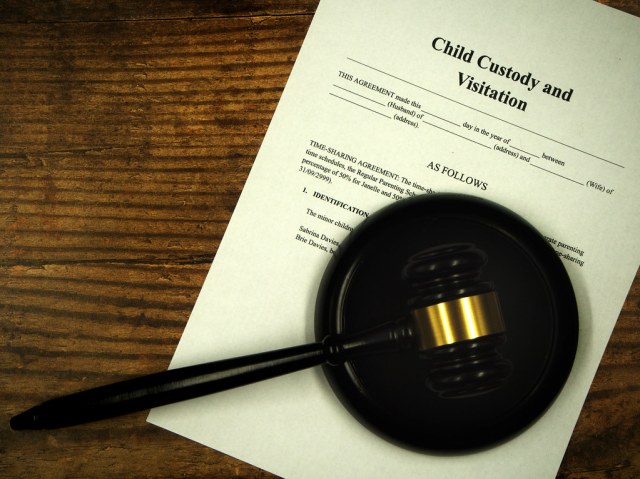
The words crash like a tsunami: “I’m pregnant and my husband is asking for a divorce.” There are few moments in life that are more shocking, a bitter roll of the dice that can leave pregnant women struggling with a maelstrom of emotional and legal obstacles. If this sounds like your reality today, be assured this: you are not alone. Millions of women have navigated this painful situation and come out stronger, armed with information, resources, and determination.
Whether your husband’s choice was sudden or after several months of marriage stress, the journey forward can be daunting. But knowing your legal rights, planning for logistical and financial challenges, and having a strong emotional support group are the initial and most important steps toward protecting your future and your baby’s health.

Understanding the Legal Landscape: Divorce While Pregnant
One of the first questions women often ask is: “Can my husband legally divorce me while I’m pregnant?”
The answer is yes, though the specifics vary depending on your state or country. In most U.S. states, a divorce can be initiated while the spouse is pregnant, but courts often delay finalizing the divorce until after the baby’s birth. This pause isn’t arbitrary it ensures all essential legal matters, such as paternity, child custody, and child support, are properly addressed.
For instance:
- Texas and Arizona: Divorce cannot be finalized until the birth of the child.
- California and New York: The process can proceed while pregnant.
Foreign countries have regulations that can vary quite a bit, so consult with a family law attorney. Filing for legal separation may be the beginning of the process even if finalization is postponed, and it provides you with a feeling of control as you await the baby’s birth.

Immediate Emotional Steps: Building Your Support System
Being confronted with both pregnancy and divorce at the same time is overwhelming, but you are not helpless. Following are some important steps to take right now:
1. Talk to Your Husband
It may seem counterintuitive, but speak with him. Even if he appears obstinate, kind, honest words can reveal deeper problems. Is he divorcing for someone else, or is stress, financial difficulty, or fear of becoming a father his motivating factor?
If that doesn’t work, professional help can intervene. Therapists or mediators offer objective places for tough conversations and can assist with making decisions regarding the relationship or co-parenting.

2. Rely on Family and Friends
You don’t have to go it alone. Share your circumstances openly with family and friends. Emotional support can be a lifesaver, bridging the stress and uncertainty. Success stories, such as Sarah’s whose pregnancy divorce was eased by family support during pregnancy demonstrate the powerful effect of a supportive network.

3. Sign up for Support Groups
Online forums for pregnancy and divorce can offer guidance, shared experience, and empathy. Websites, social networking groups, and organizations such as the Pregnancy and Divorce Association provide resource information and practical tips. If you are experiencing abuse or feel unsafe, local shelters and women’s organizations can offer critical support, such as counseling, legal assistance, and emergency shelter.
Also available are parenting classes online or in-class are designed to prepare you for newborn care, stress management, and single parenting skills.

4. Obtain Professional Mental Health Assistance
Being pregnant is enough to cause mood swings. Throw in divorce, and stress, anxiety, and depression can rise. A therapist will assist you with sorting through emotions, learning coping skills, and keeping things in perspective. Early mental health assistance is good for you and your unborn baby, and prepares you to make better decisions.

5. Practice Self-Care
Your mind and body are under a tremendous amount of stress. Prioritize:
- Nutritious food
- Gentle exercise (as approved by your doctor)
- Adequate sleep
Shun unhealthy coping strategies such as alcohol or drugs. Attend regular prenatal check-ups and think about developing a birth plan with information on your labor desires and support network. Each step you take toward self-care strengthens you and your baby.

Practical Planning: Securing Your Future
6. Develop a Thorough Plan
Develop a parenting plan addressing:
- Arrangements for custody
- Child support
- Visitation rights
Also, look at your financial stability. Are you able to support the child on your own? Research government programs such as WIC, Medicaid, or housing assistance. Having a plan takes anxiety away and provides you with a clear direction.
7. Build Mental Strength
If he is set on leaving, the acceptance of this fact can avoid the long-term anguish. Look at the good things that still exist in your life, and don’t forget: your resilience will carry you and your child through this process.

8. Hire a Family Law Lawyer
Legal advice is needed. A divorce and family law lawyer will inform you of your rights, handle custody and support arrangements, and guide you in making informed decisions. Knowing your legal position gives you the power to safeguard both your and your baby’s future.

9. Be Prepared for the Divorce Process
Begin by collecting financial information:
- Bank statements
- Tax returns
- Credit reports
Start saving where you can. This preparation makes you better prepared to meet the financial and logistical requirements of the divorce. Your attorney can walk you through filing, negotiations, and defending your interests.
10. Assert Your Right to Financial Support
If your partner denies you financial assistance, legal action might be required. Seeking child support can guarantee both you and your baby receive the necessities. Careful planning ahead provides a basis of stability for your child in the early years.

Long-Term Considerations: Looking Beyond the Crisis
Divorce while pregnant is more than solving tomorrow’s problem it’s building a healthy tomorrow.
Rethinking Divorce Timing
Pregnancy is both hormonally and emotionally stressful. Under pressure, long-term priorities may not be the decisions made. Waiting until after the birth can enable both partners to think more objectively and make better decisions.

Prioritize the Child’s Welfare
Children tend to do well in stable, nurturing environments. Evidence indicates:
- Pregnancy divorce is more prevalent than generally thought, and children’s results are better when parents co-parent well.
- Financial security, emotional well-being, and co-parenting agreements significantly influence children’s long-term development.
- Even when reconciliation is not feasible, organizing a peaceful co-parenting plan guarantees your child prospers emotionally and practically.

Alternatives for Discussion: Counseling and Mediation
Marriage counseling or mediation won’t necessarily rescue the relationship, but can enhance communication and create a cooperative co-parenting strategy. Having a baby tends to refocus the mind and can encourage cooperation despite a breakup.

Legal and Paternity Complications
If there’s doubt over paternity, legal advice is essential. The divorce in some states might not be finalized until custody and paternity issues are decided. Understanding your legal position shields you and your child and avoids future conflict.

Understanding Your Partner’s Perspective
Although your attention logically lies with your own needs, knowing your spouse’s fears or stressors can inform productive dialogue. These are often financial stress, fear of becoming a father or mother, or emotional overwhelm that motivate leaving. Recognizing these forces may facilitate navigating co-parenting or mediation processes.

Building a Resilient Future
Whether your marriage lasts or not, your future and your child’s is being written through the choices you make today. Emotional support, legal advice, self-care, and practical planning are the foundations of resilience.
Pay attention to:
- Emotional well-being
- Financial readiness
- Legal understanding
- Building a loving home for your child
Remember: this is not the end. It’s the beginning. You possess inner strength, resources, and support system to do well, regardless of which road lies ahead.

Final Thoughts
Divorce during pregnancy is an emotional and practical challenge, but with thoughtful planning, professional guidance, and a strong support system, it is navigable. Prioritize your well-being, safeguard your child’s future, and embrace the resilience within you. Your journey may be difficult, but it’s also an opportunity to build a life defined by courage, hope, and unwavering love.
Stay strong you’ve got this.






